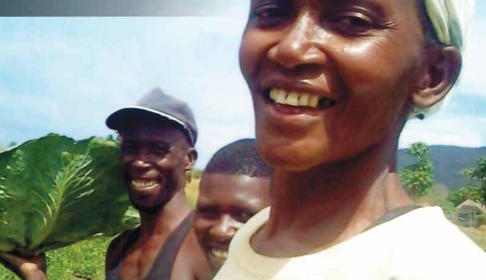Date and Time
- Wednesday May 06, 2020
Description
The Coronavirus pandemic has overwhelmed countries across the world. Key to containing this and other viruses in the future is improving HYGIENE, which requires improving access to water and sanitation for all (SDG6). This will not only improve the ability of rural/urban communities to combat future outbreaks, but also build their long-term resilience to such pandemics by reducing poverty and malnutrition.
One way to achieve this, especially in rural areas and small communities, is the dissemination of SMARTechs. SMART stands for Simple, Market based, Affordable, Repairable Technologies that can be produced locally. Examples are: manual well drilling with Mzuzu or SHIPO methods, Hand pumps like EMAS or Rope pump, small solar pumps, wire-brick rainwater tanks, groundwater tube recharge, household water filters, Corbelled and SaTo latrines, etc.
The supply chains of these technologies can be developed by SMART Centres, which train the local private sector in both technical and business skills. Currently, there are SMART Centres in 4 African countries, and starting in 4 more. Entrepreneurs trained by SMART Centres are ready to spring into action, in project designed to combat the Corona crisis.
In this webinar, Henk Holtslag and Reinier Veldman, from the SMART Centre Group (http://www.smartcentregroup.com/) present and discuss:
- SMARTechs: An overview with a focus on hygiene options that can be produced with local materials, like liquid soap, wash buckets and the zerocost wash bottles.
- SMART Centre Group: Information on SMART Centres and activities of MetaMeta, which coordinates the SMART Centre Group.
- How SMART Entrepreneurs can play a role in your Corona mitigation project
- Family Based Management: As many as 95% of family-owned pumps stay functional. Besides, such systems make water supply possible in small communities. This is demonstrated particularly by experiences of the Jacana SMART centre in Zambia.
- Well Clubs, Faith & Water: These activities involve families themselves drilling wells, and faith leaders being trained to promote hygiene and affordable WaSH solutions
- 6 practical ideas for reaching SDG6: including rural WaSH business models that have proven to be profitable and sustainable
Related Resources
- Brochure: SMART Hygiene Solutions: http://www.smartcentregroup.com/wp-content/uploads/2020/04/Smart-Hygiene-Solutions_V1.1_22APR2020.pdf
- For resources like the SMARTech catalogue, Videos on SHIPO and Mzuzu drilling, Rope pumps, Mzuzu wash bottle etc. see website: http://www.smartcentregroup.com/

{jcomments on}
